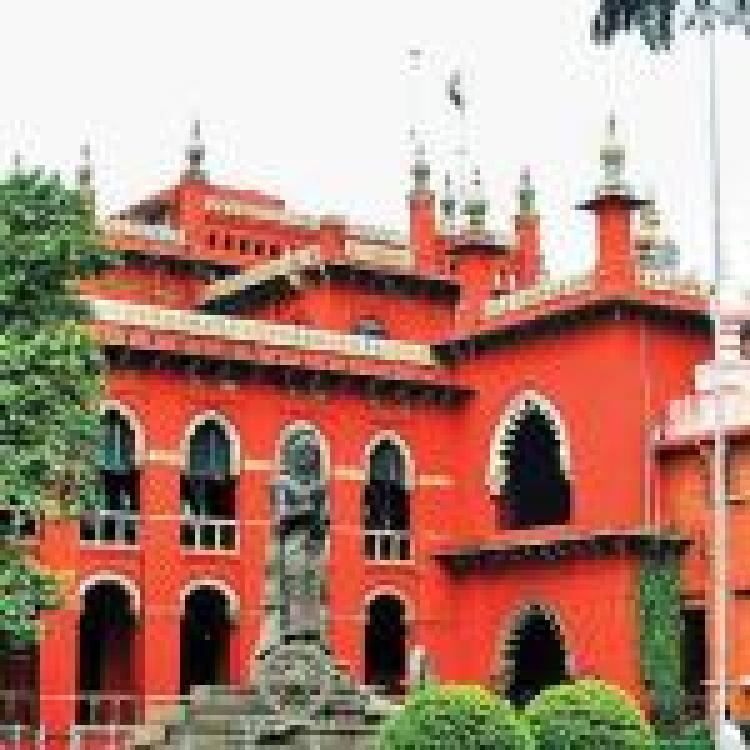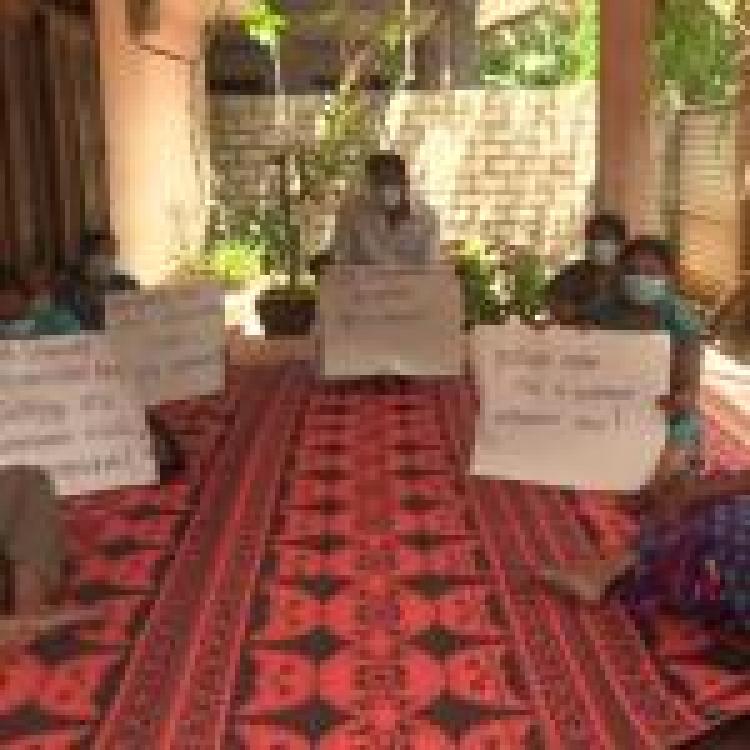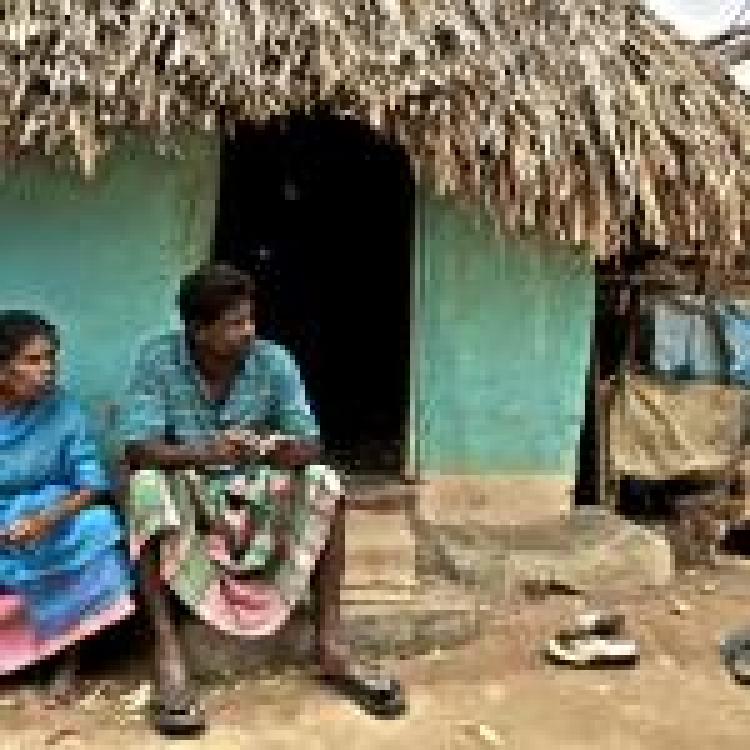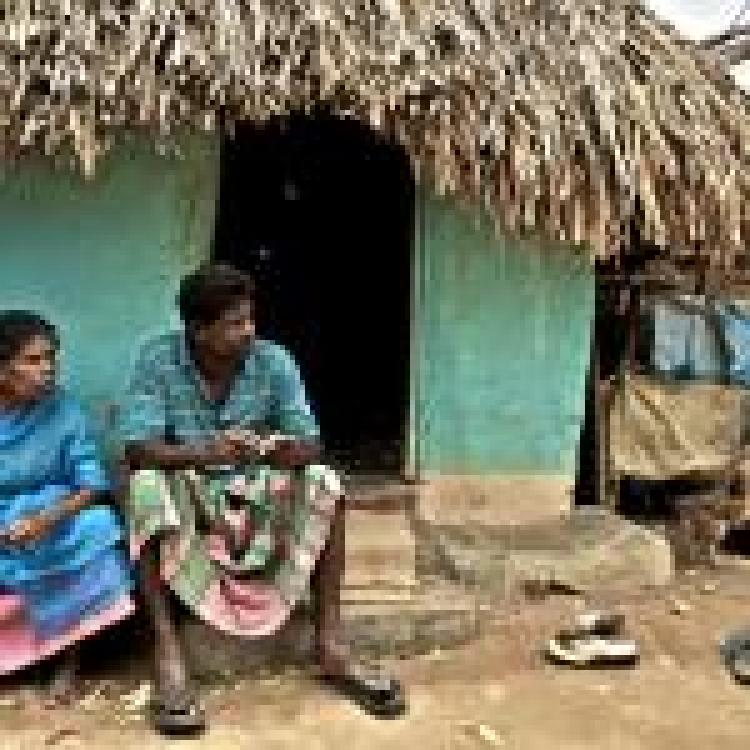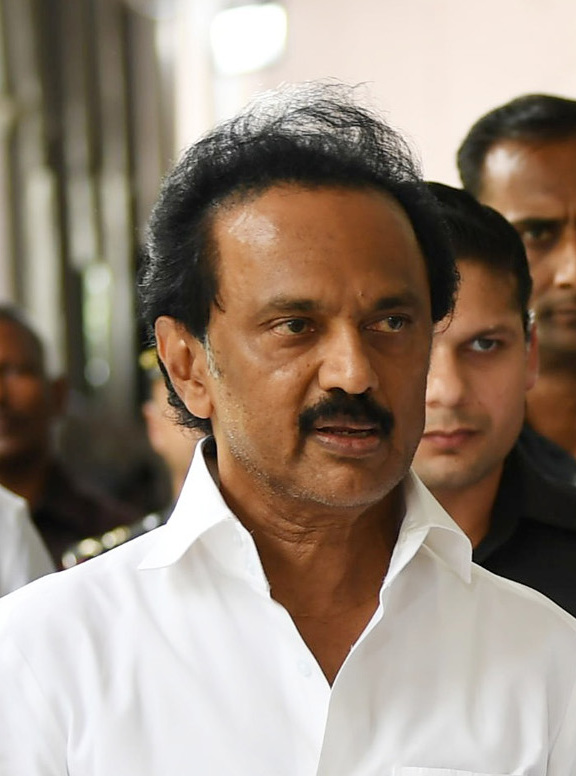
File Photograph: Tamil Nadu Chief Minister, M.K. Stalin
The Tamil Nadu assembly and its current chief minister M.K Stalin, have passed a resolution calling on the Union government to repeal the citizenship amendment act (CAA) because it 'does not accord a warm support to the refugees, considering their plight, but discriminates against them on the basis of their religion and country of origin', referencing the plight of Eelam Tamil refugees amongst others.
M.K Stalin proposed the resolution on 8 September, while the BJP walked out, it's main ally the PMK welcomed the resolution moved by the Chief Minister. The resolution said, 'This House considers that the Citizenship (Amendment) Act is not in tune with the secular principles laid down in our Constitution, and also not conducive to the communal harmony that prevails in India'. The resolution was adopted unanimously after the BJP walked out.
Eelam Tamil Refugees in India
![]()
File photograph: Eelam refugees in Tamil Nadu, 2012. Courtesy EC/ECHO Arjun Claire
The Indian central government has appealed to the Madras High Court challenging the June 17, 2019 order which stated that the plea of 65 Eelam Tamils seeking Indian citizenship, some of whom are descendants of Malayaga Tamils, should be considered.
The central government stated that the judge prior had failed to consider the fact that the 65 Tamils had not been willing to get the benefit of the Srimavo-Shatri Pact, an agreement which was meant to address the issue of near 1 million Tamils who had been made stateless by the Sri Lankan government.
The Centre argued that the issuance of citizenship to these Tamils would 'open the floodgates for illegal migrants from Bangladesh, Afghanistan, Myanmar, Africa and the Central Asian Countries'. In 2019, the single bench allowed 65 Eelam Tamils to submit a new citizenship application to the District Collector.
The latest records by the Indian government document that there are more than 90,000 Eelam Tamil refugees who are currently in India. Tens of thousands of them remain in camps across Tamil Nadu and have felt the brunt of the coronavirus pandemic and the lockdown that followed. Many have lost their means to earn a daily wage and the cramped conditions across the camps increase the risk of virus transmission.
Many refugees fled Sri Lanka and have been living in Tamil Nadu for about three decades. Despite this, the Indian government refuses to grant them citizenship. While the controversial Citizenship Amendment Act passed in 2019, Eelam Tamils were excluded from the amendment, thus keeping them in a state of limbo. Indian state forces are known to harass and intimidate and subject the community to constant surveillance.
Speaking to HuffPost India twenty-eight-old T. Yanadhan, who was born in Tamil Nadu after his parents fled from Sri Lankan oppression, requested a mercy killing from Indian authorities, stating that he was better off dead than living stateless.
K.Manikkavasagam (name changed on request), an inmate of Madapam camp near Rameswaram, Told Huffpost India,
“In the camps, we live in the shadow of fear and insecurity. We are not allowed to move around in town. There are restrictions on talking to the media. All our basic rights have been curtailed. Three or four decades in a camp means you are incapable of doing anything worthwhile in life. We are always discriminated.”
Read more at The Hindu and more from HuffPost India, including interviews with other Eelam Tamil refugees across Tamil Nadu here.

